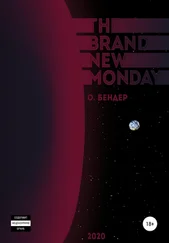Then the old man turned his head, changing into a raccoon, its long tongue hanging out. Was it ill? Andrew didn’t even know what he was supposed to look for.
The raccoon bounded from the fence and landed beside him. Andrew covered his face, but the raccoon didn’t touch him. He heard it race across the snow, scramble over something, and then nothing. But Andrew still kept his face covered, listening, refusing to move until he’d heard something more.
“Sweetheart,” he said after some time had passed. “Please.”
There were the sounds of distant traffic, the soft whisper of wind across the snow, a dripping suggestive of an imminent thaw, and then, possibly, yes .

PACK YOUR COAT
Aliya Whiteley
It swept through our school at a ferocious rate. By the time first bell had sounded for break everyone already knew it, and it was busily mutating in the playground to appeal even more to the children that shared it.
Such stories are viruses. They have a life of their own.
They breathe, and move, and infect us.
This one was about an orange coat.
* * *
I didn’t realise how much it had a hold on me until I came across it again, twenty years later, in my office.
“My sister’s friend,” said Katie.
“Your sister’s friend saw him?” Tyler leaned forward, over his desk, his attention fully diverted from his computer.
“What’s this?” I said. I’d just finished a call with a potential buyer for the business. It was the first sniff in an age, and I had been indulging myself in the dream of leaving town for good, starting over somewhere else, as I emerged from the back room to get a coffee.
“Tell her,” said Tyler. “Start at the beginning.”
* * *
She walks along the top of the cliffs, with eyes cast down, attention reserved only for the sea. It is unpredictable where the rocks jut out the waves bulge and then spray erupts over the jagged peaks. But this is all happening far below her, and there is no path down. The cliffs have been marked as unsafe, and wire nets have been stapled over the barefaced slabs that threaten to fall. It feels like containment to her; if they should crash, let them go.
There isn’t much daylight left. The tide is coming in fast. The waves have a ferocity to them that excites her. Soon the rocks will be covered, and then the small lip of the beach below.
The dog is having a fine time, capering ahead of her, stopping, sniffing, running on. She doesn’t call him back. He’ll come when he’s ready.
The path diverges from the cliff, turning inwards, and gorse bushes spring up on either side, but she ignores it and sticks to the edge instead. It’s her usual route. A faint track has established itself through footfall over the years. She’s not sure whether it’s been made only by her own walking, or if she’s just one of many locals who come this way.
The wind shifts direction to blow her hair straight back, bringing tears to her eyes and new sounds to her ears. Seagulls. The shush and crash of water. The dog, barking.
She calls for him, and he doesn’t come.
She speeds up, scanning for him, and finally spots him in the distance. He’s very close to the edge, dodging forwards, barking, chasing around in a circle to start again. Shouting at him does no good. She runs the remaining distance, the cold wind stabbing at her face, into her lungs, and grabs his collar to clip on the lead.
His attention is still on the edge. She looks over and sees, on the rocks, an orange coat.
It takes her a moment to work out that it’s not just a coat, flapping. A man wears it. He is waving.
She waves back. He does not stop waving, using both arms over his head. The spray of the waves is soaking him in regular bursts. He slips to one knee, then struggles to stand.
There’s no boat, no sign of how he got there. Did he climb down? How can he climb back up?
The waves are breaking so close to him. For a moment he is hidden from view by a fierce uprush of the sea, and she holds her breath. But he’s still there when it recedes. He is looking at her.
She takes out her phone and dials the emergency number. She asks for the coastguard, and describes where he is. She feels calm, even though the dog is pulling at the lead, still barking. She can’t hear what the voice is saying. “What was that?” she asks.
“Hold on,” says the voice. “Hold on.” It’s not really a message for her, but for the man on the rocks, so she shouts it down to him, knowing that he can’t possibly hear her.
He continues to wave. She can’t wave back any more, with one hand holding the lead and the other holding the phone. “Hold on,” she calls again.
She feels the big wave coming. There’s a pattern to the sea. The smaller waves clashing over the rocks can only lead to a larger swell. The sea pulls back, exposing more of the rock on which he stands, and then the water surges over him entirely, like a sheet being thrown into the air to settle on a bed.
When it recedes, he’s gone.
She scans for a sign of him. The orange coat. Surely that will be visible? Her eyes will find the orange coat. But she does not see it, and the coastguard does not find it, even though they search for hours, well into the night.
Later on, an official suggests delicately to her that maybe the man was a product of her imagination. Not there at all.
* * *
“That’s an old one,” I say. It has made some more changes to itself since the first time I heard it, but I’d know it anywhere. It’s the coat that gives it away; the coat is always the same.
“It just happened last week,” says Katie. “To my sister’s friend.”
“Friend of a friend of a friend,” adds Tyler, and smiles at me.
I try to think of something managerial to say, but the best I can come up with is some old cliché about time being money, and then I retreat to my office, abandoning my plans for coffee in my desire to get away from the same old conversations, the usual crowd. The story that never ends
* * *
I meet Sarah in the Ship and Anchor. She’s already ordered two white wines. Large ones. It’s been a bad week for her too, then.
We sit in the back room. It was once called the Ladies’ Lounge, and is always quieter than the main bar, as if memories of those times continue to permeate the atmosphere.
“Here’s to Fridays.”
“Fridays,” I echo. She starts talking, and I listen. She’s not from here originally, so even when she’s moaning about life I find it more bearable than talking to the people I grew up amongst. She brings a fresh perspective to it all, which makes me feel better for a while.
I tell her about the possible buyer for the firm.
“That’s brilliant! I know it’s taken a while, but I’ve always said someone was going to come along. That place is a goldmine. Solar panels are the future.”
“Not my future, hopefully.”
She knows this story too. I inherited a business from my father, gave it a few tweaks to bring it up to the present day, and have been tied to it ever since. And she’s wrong: it’s not a goldmine. It’s a life support machine. It sustains me and ties me to itself. Being connected to it, and this town, is almost like living, and nothing like a life at all.
“Are they offering enough?” says Sarah.
“Just about.” I have a whole year of travel planned. I’ve had my route marked on a map above my bed for years. I used to trace it with my finger. “There’s a long way to go yet, though.”
Читать дальше













